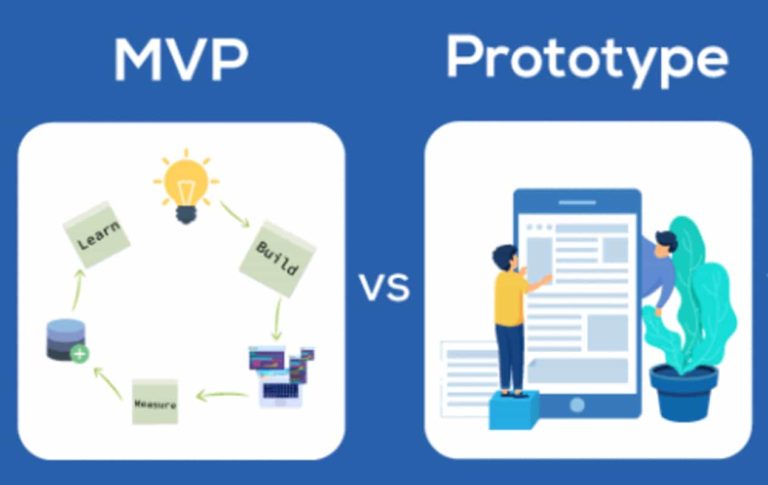113 Most Relevant Startup Statistics in 2025

Thousands of ambitious entrepreneurs take a leap of faith every year and try to break out on their own by founding a business.
Many of these ventures may fail, but the ones that succeed continue to fill us all with the hope of one day becoming a boss.
The journey is often tough, with lots of lonely days and nights, financial issues, and other lows and highs. And still, these rough circumstances are what continue to drive the entrepreneurial spirits.
Most would-be founders know that starting or even running a business is not easy. But rather than just make wild guesses about the potentials ups and downs of becoming an entrepreneur, a detailed guide might do better.
So, here are 113 statistics about startups and the world of business. They should give you a solid understanding of what awaits the average small business founder.
Startup Funding Statistics
- 42% of startups used venture capital for funding in 2020. 16% of startups borrowed from friends and family, while 7% got funding from angel investors. Silicon Valley Bank
- 36% of startups expect venture capital to be their next source of funding. 12% hope for organic growth of the business, while 10% hope for corporate investors, and 7% on friends and family. Silicon Valley Bank
- Venture capital funding increased by 14% in 2020, reaching a record $130 billion. This was despite the economic issues created by the Covid-19 virus. Bloomberg
- Less than 10% of startups that raised seed funding, also succeed to raise a Series A round. Series A differs from the seed round by offering venture capitalists access to preferred stocks for the first time. In exchange for funding, of course. Venturebeat
- The average seed funding for startups in 2020 was $2.2 million. While the average pre-money valuations for the same year stood at $6 million. Seed funding figures can vary widely from a few thousand dollars up to $10 million. And the equity exchanged for the funding generally ranges from 10% to 25%. Fundz
- The average Series A funding round in the United States stood at $22 million for 2021. The figures have steadily grown over the years and stood at $15 million in 2020, which makes it a 30% increase for 2021. Fundz
- The average Series B funding round in the United States stood at $33 in June 2020. Pre-money valuations of the average Series B startup in 2021 stood at $40 million. Fundz
- The average Series C funding round in the US stood at $59 in June 2020. While the average Series C startup valuation was $68. Fundz
- The top 3 accelerators of 2016 accounted for about 10% of all Series A rounds in the United States. These top programs include Y Combinator, Techstars, and 500 Startups. Mattermark
- Startups worldwide raised a total of $621 billion from investors in 2021. This set a new record and more than doubled the previous year’s funding. About half of this funding ($311 billion) went to US startups, mainly located in the Silicon Valley and New York regions. Bloomberg
- Artificial intelligence startups raised $61.6 billion in 2020, a 35% jump over the previous year. This compares with the $277 million in total funding raised worldwide in 2010. insideBIGDATA
- Global investment funding in 2020 dropped by 20% in general, but China was hit much harder with a 50% drop. The NextWeb
- Less than 3% of startups get investment funding. Bloomberg
Startup Failure Statistics
- The startup failure rate of US companies was up to 90% in 2019. From this figure, 21.5% of startups fail in their first year, up to 30% fail by the second year, up to 50% by their fifth year in business, and up to 70% by the 10th business year. CB Insights
- 75% of venture-backed startups fail. This means that they do not return any cash to the investors. And in up to 40% of the cases, the investors lose everything they staked on the company. Failory
- 35% of startups fail because their product has no market. This means the founders spent time, effort, and money to solve interesting problems that had no real-world value. CB Insights
- 29% of startups fail because they ran out of money. This can include personal savings, investments from friends and family, as well as external funding. CB Insights
- 20% of startups fail because they ignore their competitors, while 8% fail because of a flawed product. And 5% fail because of the burnout of their founders. CB Insights
- 40-year old founders are twice as likely to start a successful company than 25-year olds. This has a lot to do with the commonsense and experience that comes with age. A 40-year old is 1.3x as likely as a 25-year old founder to start a business in the top 0.1%. About 3% of founders are 40-year olds, while that figure goes down to 1.7% for 25-year olds. Kellogs
Startup Success Statistics
- The Chinese tech company ByteDance is currently the most valuable unicorn in the world, at about $350 billion by December 2021. ByteDance is the parent company behind TikTok. It is heavily focused on AI applications with rapid development iterations. It is followed by SpaceX at number two, with a $100 billion valuation. CB Insights
- About 50% of startups survive their fifth year in business. This goes down to about 30% of organizations that survive their first 10 years. CB Insights
- A majority of successful exits are from startups with solo founders. An exit is the successful monetization of the enterprise by either going public and listing its shares on exchanges or through an acquisition, so investors can cash out. Crunchbase
- 57.6% of all UK businesses started in 2013 were gone by 2018. This means that more than half of all UK startups fail within 5 years. Office for National Statistics
- 89% of UK startups founded in 2017 survived past their first year. Office for National Statistics
Startup Founders’ Statistics
- 25% of all new businesses in the US are started by immigrant entrepreneurs. This figure was just 13.3% in 1996. In California, New York, and New Jersey, these figures are above 40%. Forbes
- Over 60% of US adults and 80% of Saudi Arabian adults know someone that started a business in the past 2 years. While only 20% of Japanese adults know someone that started a business in the last 2 years. GEM Monitor
- Small businesses make up 99.9% of all companies in the US. A small business is defined as any operation with fewer than 500 employees. These firms number slightly over 32 million in the US. SBA
- 55% of American unicorns with an over $1 billion valuation have at least an immigrant founder. Most of these companies are based in California, then followed by New York and others. Forbes
- 65% of UK adults want to start their own business. This comes from a 2020 survey of 1,000 adults, with 21% not wanting to start a business, and a further 14% being unsure. Micro Biz Mag
- 82% of successful founders say they possess enough qualifications and experience to run a business. Observed from a different angle, this means that a good level of self-confidence is necessary for business success. Small Biz Trends
- Over 90% of European startups are satisfied with their business conditions. European Startup Monitor
- Stanford, MIT, and Harvard produce the most founders, compared to similar institutions. Stanford produced 465 founders in 2020, while MIT produced 367, and Harvard produced 293. Statista
- 80% of US businesses are owned by white founders, while Asian entrepreneurs own 10% of businesses. Pew Research
- While immigrants make up 15% of the black US workforce, they make up 23% of black-owned businesses in the US. Pew Research
- 30% of business founders are serial entrepreneurs, while 70% are running their first business. Freshbooks
- An average serial entrepreneur will found and run 3 businesses over his lifetime. Freshbooks
- White-owned startups receive an average of $18,500 in outside equity, while black-owned startups receive $500 on average. NerdWallet
- 80.2% of white business owners receive at least a percentage of requested funding from banks, while 54% receive the full amount. In contrast, 77.1% of Asian owners receive a percentage and 33.8% receive the full amount. While only 60.9% of black owners receive a percentage, and 26% receive the full amount. NerdWallet
Startup Marketing Statistics
- Only about 64% of small businesses have a website. This puts about 36% of small businesses without one. However, about 31% of those without a website depend on social media, while 26% feel their customers are not online, and another 25% simply lack technical knowledge. Fundera
- 92% of founders believe that having a website is their most effective digital marketing strategy. This includes the application of search engine optimization techniques for the site. Statista
- 28% of small businesses report making more sales online in 2021 than in the previous year. Most of these business owners attributed their success to Covid-19 and owning a website. Quickbooks
- 51% of small businesses engage in social media marketing to grow their business. Statista
- 60% of small businesses cannot track the ROI from their social media marketing. ROI stands for Return on Investment and is a method of knowing how much profit you are making for each marketing dollar you spend. Hubspot
- 64% of small businesses say email marketing is effective or very effective. 65% have an 11% to 50% open rate, and 0% to 10% clickthrough rate. Aweber
- 94% of startups write their marketing emails themselves. And 54% send a marketing email every week. Aweber
- 71% of startups do not implement a referral marketing program. Unstack
Startup Growth Statistics
- There were 18,100 searches from the UK for “how to start a business” in January 2020. Micro Biz Mag
- For the 2018/2019 tax year, a total of 672,890 startups were founded in the UK. This breaks down to 1,843.5 startups per day or 76.8 every hour. For the tax year 2019/2020, there were 665,495 startups, equating to 1,823 new companies per day or 75.8 every hour. Micro Biz Mag
- The UK had 14,000 high-growth businesses in 2018. High growth here refers to businesses with an average employment growth above 20% in 3 years. Office for National Statistics
- The robotics and advanced manufacturing industries have seen over 1,400% in exponential growth over the last five years. Statista
- 82% of startups were already making money from customers before raising Series A funding in 2018. This contrasts with 2016 when just 56% were making money, and even 2010, when it was just 15%. Techcrunch
- The biotech industry was valued at $793 billion in 2021. It is also projected to grow to $1.6 trillion by 2030, at an 8.7% CAGR (Compounded Annual Growth Rate). Globe News Wire
Startup Team Statistics
- Top-tier accelerator programs which help startups to secure Series A funding, accept an average of just 2% of applicants into their programs. Their major evaluation factor for getting accepted into these leading accelerators is the makeup of your team. Fundz
- Approximately 33% of startups that raise a Series A round pass through an accelerator program. Pitchbook
- 23% of startup failures are linked to issues with the team. Having a team that lacks vision or the passion to help your dream succeed can quickly lead to a dead startup. Entrepreneur
- New founders spend up to 40% of working hours on non-income generating tasks. Entrepreneur
- Over 99% of US businesses are considered small. According to official definitions, this simply means that 99% of US businesses have less than 500 employees. SBA
- Over 50% of small businesses either have a CFO (Chief Financial Officer) or a controller handling their books. Wall Street Journal
- Startups with 11 to 50 employees are more likely to fail. Failory
Startup Women’s Statistics
- About one in four or 28% of US startups have a woman as part of the founding team. Silicon Valley Bank
- Women own 36% of small businesses worldwide. This shows a 114% increase in the last 20 years. Legal Jobs
- Over 46% of private businesses in the West-African state of Ghana are owned by women. Legal Jobs
- 15.5% of European entrepreneurs in 2020 were women. Startups and Places
- California has over 1.3 million women-owned companies, while Texas has about 860,000. Legal Jobs
- 14% of American startups have a female CEO. This chance is increased by having at least one woman as part of the founding team. Nearly half of startups with female founders have a female CEO. Silicon Valley Bank
- Over 50% of US startups lack a woman in leadership positions. And only about 43% of startups have at least one female c-level executive. And 42% have one that is on the board of directors. Silicon Valley Bank
- Companies with at least one female founder received 23% of all the US venture capital deals in 2019. However, the value of those deals amounted to just 7% of all VC deals in 2019. Silicon Valley Bank
- Women-owned businesses continue to grow at 5% as women launch 1,200 new businesses in the US everyday Legal Jobs
- 30% of startups have programs in place to increase the number of women in leadership positions. Silicon Valley Bank
- Women raise 38% less funding under equal conditions. Startups and Places
Startup Costs Statistics
- Slightly above 50% of UK startups report that their greatest barrier to starting a business is a lack of finance. Other barriers include knowledge (17.7%), confidence (9.4%), and time(3.2%). Startups
- 13% of prospective founders do not see writing a business plan as an important task. On the other hand, over 70% of founders who already have a business recommend writing a plan before proceeding with your venture. Quickbooks
- It only costs £14 (which is $18) and about an hour to start a business in the United Kingdom. This and low taxes, reliefs, low inflation, and a teeming population make it one of the best places to start a business.
- Over 76% of founders about to start a business in the next 12 months say they “probably” or “definitely” have contingency plans. Quickbooks
- 76% of prospective business owners plan on choosing their business names by themselves. And 53% of the same group intend to also design their logos by themselves. Experienced business people always advise that you consult experts for these things because laws vary from location to location. Quickbooks
- A third of all US small businesses were started with less than $5,000. While 58% were stated with less than $25,000. This comes from a poll of 600 successful small business owners, which included accounting, online retail, and construction. Kabbage
- About 58% of small businesses are started from scratch, while 18% are purchased by their owners. Guidant Financial
Fintech Startup Statistics
- The global fintech market share stood at over $5.5 trillion in 2019. The Asia-Pacific region dominates with a 49.5% market share. And the entire industry is projected to grow at a 23.58% CAGR until 2025. GlobeNewswire
- There were around 100 fintech unicorns in 2021 and they had a combined market valuation of $400+ million. Fintechnews
- 37% of financial services offer one or more fintech services to their customers. PwC
- 47% of traditional financial businesses like banks, plan to increase their collaboration with fintech companies. This is in a bid not to lose out in the future, as 94% of these traditional companies believe that the future belongs to fintech. PwC
- 75% of companies from the financial sector are creating fintech-related jobs. PwC
- In 2018, the Chinese fintech giant Ant Financial raised a record $14 billion in funding. Today, Ant Financial has a $200 billion valuation. Reuters
- In-store mobile payments grew by 29% in 2020. And this trend is projected to grow to over half of all mobile users by 2025. Insider Intelligence
- 88% of financial institutions expect part of their businesses to be lost to fintech in the coming 5 years. PWC
- Proximity mobile payments are on the rise. With over 92 million American users of the technology in 2020. Forbes
- Chatbots will help financial institutions to save over $7 billion by 2023. Juniper Research
General Startup Statistics
- 29% of founders started their own business so they could be a boss. Another 17% said they started a business because they were dissatisfied with the US corporate system. Guidant Financial
- 69% of U.S entrepreneurs start their business from home. This makes the business easier to manage, as there are fewer overhead costs and most startups are self-funded anyway. 72% of home-based startups are run by women, going to 68% after the business has crossed the 3-year mark. Small Biz Trends
- The global startup economy created about $3 trillion in value between 2017 and 2019. StartupGenome
- 15% to 20% of adults across all age groups are entrepreneurs. 30% of young adults want to start a business, while fewer middle-aged adults want to. The percentage rises again from age 65 upward. Small Biz Trends
- Startups helped to create over 2 million US jobs in 2015. US Census Bureau
- The United States is the leading country in the world in terms of the sheer number of startups, with over 71,192. India comes in at 13,174, the United Kingdom at 6,221, Canada at 3,305, and Germany at 2,295. Startup Ranking
- About 7.1% of all startups are in the fintech industry. Fintech refers to financial technology and includes everything from Bitcoin to cross-border payments, asset tokenizations, and financial security. Fintech is followed by healthcare at 6.8%, Edtech at 2.8%, and AI at 5%. Statista
- 58% of US startups expect an eventual acquisition of their company in the future. 58% of UK startups also expect the same, while the figure goes down to 14% for Chines startups. Silicon Valley Bank
- 46% of Chinese startups expect going public via an IPO as their long-term goal. While that number comes down to 17% for US startups, and 18% and 16% for the UK and Canadian startups. Silicon Valley Bank
- There were a total of 475 unicorns around the world in 2020, with a total worth of $1.39 trillion. Unicorns are startups with a valuation of over $1 billion. There are currently over 1,066 unicorns worldwide, with a total valuation of over $3 trillion. CB Insights
- Startups generate the majority of jobs in the US. They create 1.5 million jobs annually, which account for about 64% of all new jobs created in the United States. Fundera
- 74% of small businesses make less than $1 million in revenue annually. Pew Research
- 1 in 5 founders runs the business together with a family member. GEM monitor
Regional Startup Statistics
- About half or 50% of unicorns worldwide are located in the United States and a majority of them are in the San Francisco Bay Area. The US is followed by China with about 25%. Crunchbase
- 52% of US startups have at least one foreign-born founder. For the UK, it is 53%, and 52% for Canada. Silicon Valley Bank
- About 50% of startups have problems with hiring due to immigration and related public policies. SVB
- Around 419,000 new businesses got registered in February 2022 in the United States. 19,057 or 4.5% of those were in the finance and insurance industries, 1.8% were in information, and 19% were in retail. US Census Bureau
- About 25% of new businesses plan to work with a 100% remote workforce. Working fully online depends on your business type, so may not be ideal for everyone. Quickbooks
- 55% of US unicorns – startups valued at over $1 billion – were started by immigrants. They are also important members or major team leaders in over 80% of such unicorns. NFAP
- 60% of European founders have traveled to the US at least once, for their current business. Startup Heatmap Europe
- 64% of European founders will still choose Europe over the US for their business if they had to do it all again. Startup Heatmap Europe
- Ecuadorians are comprised of over 30% entrepreneurs, making them the most entrepreneurial country in Latin America. Retos
Artificial Intelligence Startup Statistics
- The AI market is projected to deliver about $13 trillion of additional economic output to the world economy by 2030. This figure represents a 16% growth in global GDP compared to today. McKinsey
- AI-related hardware is projected to grow by a 37.6% CAGR from 2019 to 2026 and become an $87 billion market. Finances Online
- 60% of founders agree that the most innovative technology at the moment is artificial intelligence. SVB
- The global machine learning market is projected to grow from $47 billion in 2021 to $360 billion in 2028, at a 33.6% CAGR (Compounded Annual Growth Rate). This will be boosted by higher adoption of hyper-personalized services, AIoT (Artificial Internet of Things) technology, and the healthcare industries. Fortune Business Insights
Conclusion
Reaching the end of this list of the top 113 startup statistics, you have seen how exciting and rewarding the entrepreneurship journey can be. As well as the potential risks and pitfalls that lie along the way.
Where you go from here is up to you. Just keep in mind that you may find more fulfillment when you do it for fun, than when you do it only for the money.





